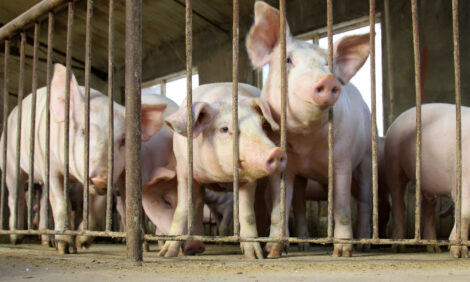



Scotland Considers Making PED Notifiable
SCOTLAND, UK - The Scottish Government is considering proposals to make Porcine Epidemic Diarrhoea (PED) a notifiable disease in Scotland.In response to industry requests, the Scottish Government has now launched a six week consultation on whether PED should be considered a Specified Disease.
This would require a change in legislation to make it mandatory for any suspected case of PED to be notified to the relevant authority. In practice this would be to Quality Meat Scotland (QMS) through the new Scottish Pig Disease Control Centre.
Rural Affairs Secretary Richard Lochhead said: “PED does not affect humans but is potentially devastating for piglets and pig welfare.
“Scotland’s pig industry, which was worth £95 million to our economy last year, is understandably concerned about a new virulent strain of PED that has been seen in pig herds in China, North America and, more recently, in the Ukraine.
“Although there have been no reports of this strain in the EU, there are other strains circulating within the EU pig herd that could also have potentially serious consequences.
“The Scottish pig industry has been working, with Scottish Government support, to prevent an incursion of this disease, and to develop robust contingency plans for dealing with an outbreak should one occur.
“I have been asked now to make PED a notifiable disease, and we are now formally consulting on these proposals. I would encourage everyone with an interest in pigs and pig health to respond before the 24 December deadline.”
Quality Meat Scotland Pig Specialist, Allan Ward, welcomed the launch the consultation on proposals to make PED notifiable on suspicion in Scotland.
He said: “Scottish pig producers have worked extremely hard to build an enviable health record in the Scottish herd. It is vital that PED is notifiable on suspicion in order for the industry to act quickly to ensure it is controlled and eliminated.”
Brian Hosie, Head of SAC Consulting Veterinary Services, added: “We have tracked the spread round the world of this new strain of PED. The heavy mortality in piglets caused by this virus has had a serious impact on animal welfare and the viability of the pig industry in many countries. We welcome the proposal to make PED notifiable so that there is a legal requirement for anyone to report suspicion of the disease. This is an essential component of the contingency plan drawn up with Scottish producers. The vets and laboratory scientists working in SAC Consulting Veterinary Services look forward to working in partnership with the other stakeholders to protect our industry against PED.”
British Veterinary Association Scottish Branch President, Grace Webster, said: “The British Veterinary Association Scottish branch have been involved in discussions with the Scottish Government for the last 15 months about how we should take steps to prevent and control a disease that could be devastating for Scotland’s pig industry and livestock. We are very pleased that the pig industry and veterinary surgeons in Scotland have worked together so effectively on this issue to bring us to this point. We warmly welcome the consultation and will continue to give our utmost support to the Scottish Government and pig industry to protect and promote pig herd health and welfare in Scotland.”
Aberdeenshire pig producer Kevin Gilbert, who chairs NFU Scotland’s Pigs Committee, said: “The threat posed to the health of Scottish pig herds by PED is substantial and infection would be a devastating blow to the sector. Were it to arrive, then speed is everything in disease control and in reducing the health, welfare and economic impact of a virus like PED. NFUS welcomes this consultation. We believe that introducing notifiable status for PED would ensure reporting and communication is embedded within our pig sector and, in the worst case scenario of an outbreak, it would trigger an immediate response involving producers, hauliers and processors to shut down the disease spread.”






